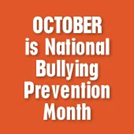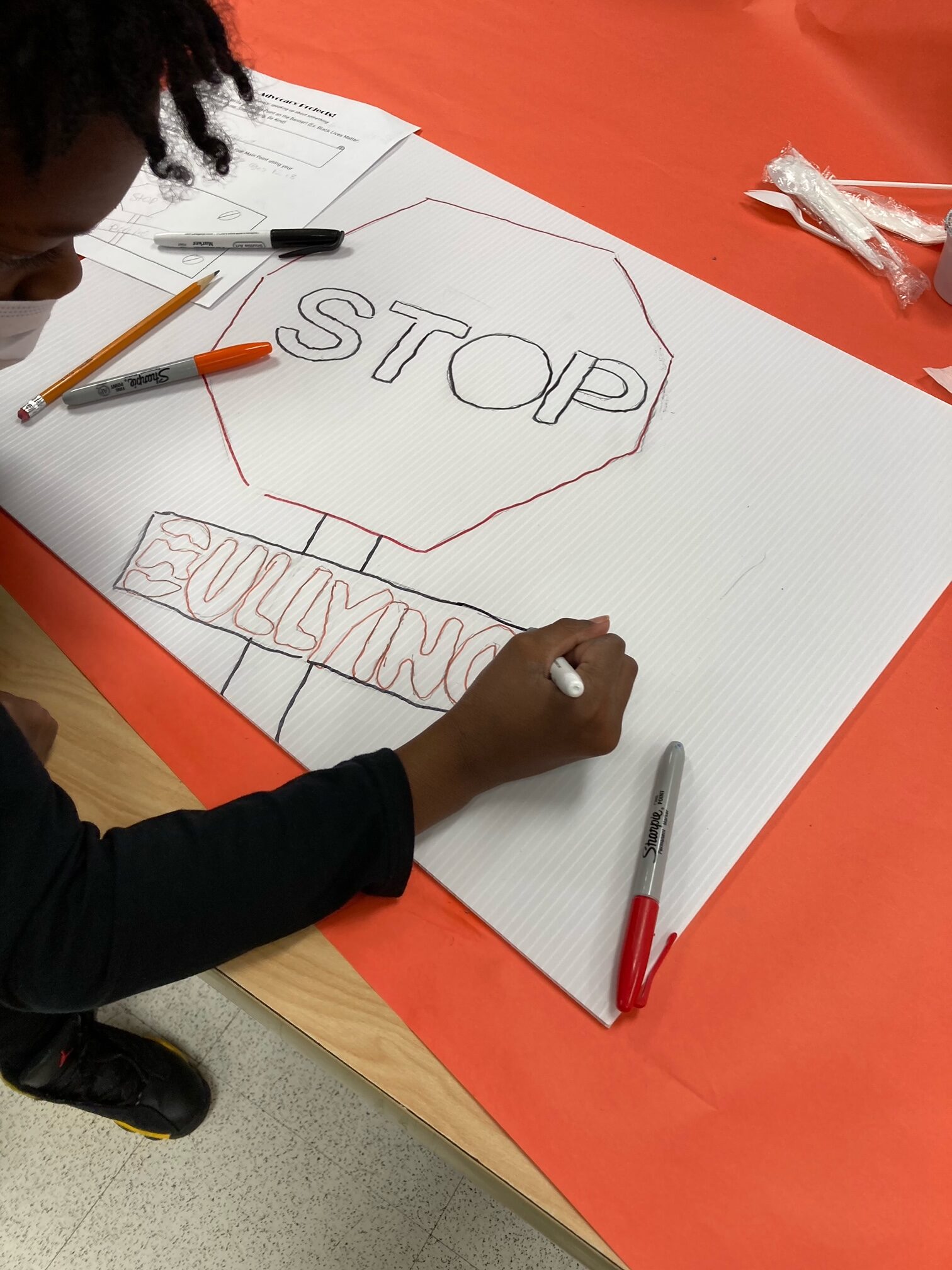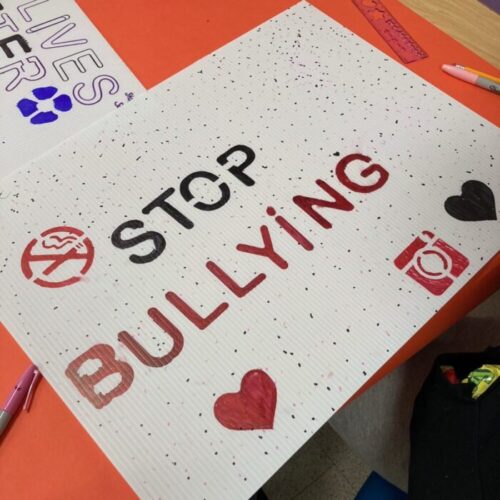October is National Bullying Prevention Month and Wyman’s evidence-based Teen Outreach Program (TOP) and Teen Connection Project (TCP) support bullying prevention by offering teens opportunities to connect, learn about one another, build relationships, and develop social and emotional skills, including empathy.
 In one of our TOP lessons, “Bullying: Becoming an Upstander,” which was adapted with permission from the National School Climate Center, teens learn about bullying and standing up to do what is right, even if no one else is. “In this lesson, teens talk about bullying, empathy, and the idea of becoming an upstander, not a bystander,” says Annie Philipps, Wyman’s National Network Director of the Teen Outreach Program. “The lesson presents teens with several scenarios, and they talk about how the characters in the scenarios could become upstanders. It’s amazing to see teens develop their understanding of bullying behavior and their confidence to make a difference.”
In one of our TOP lessons, “Bullying: Becoming an Upstander,” which was adapted with permission from the National School Climate Center, teens learn about bullying and standing up to do what is right, even if no one else is. “In this lesson, teens talk about bullying, empathy, and the idea of becoming an upstander, not a bystander,” says Annie Philipps, Wyman’s National Network Director of the Teen Outreach Program. “The lesson presents teens with several scenarios, and they talk about how the characters in the scenarios could become upstanders. It’s amazing to see teens develop their understanding of bullying behavior and their confidence to make a difference.”
This lesson has really resonated with TOP teens at Campesinos Sin Fronteras. Campesinos Sin Fronteras (CSF) is a Wyman National Network partner in Yuma County Arizona. They are a nonprofit organization whose mission is to promote self-sustainability to farmworkers and low- to moderate-income individuals by providing and facilitating access to health, behavioral health, social services, housing rehabilitation, counseling, education, and workforce development. CSF is committed to reducing the social and health disparities in their community and offer several programs to reach their goals, including Wyman’s Teen Outreach Program.
Karen Castelo, a TOP coordinator at CSF, shared some reflections their teens had after participating in the “Bullying: Becoming an Upstander” lesson. “Many students connected to this lesson and shared some of their experiences with being made fun of, talked about, gossiped about, or even remembering times where a student was being mistreated, laughed at, or targeted – and students witnessed the behavior but never said anything to address it,” said Karen.
“Once the lesson was done, students shared what they had learned. They shared that they were not aware that bullying could be more than just physical; they didn’t know it could involve someone’s mental health and take an emotional toll on them. Some didn’t know that bullying could happen anywhere, not just at school. And most students shared that bullying made them uncomfortable because they know what it feels like but don’t know how to address it. One student even shared that he used to bully others but once he realized the impact it could have, he stopped, and this lesson reminded him of the importance of caring about others, standing up, and doing the right thing.”

To learn more about bullying prevention, the development of empathy and other social emotional skills, and teaching the youth in your life to become upstanders, check out these resources:
- https://www.stopbullying.gov/
- National School Climate Center – BullyBust
- National Bullying Prevention Month
- Collaborative for Academic, Social, and Emotional Learning (CASEL)


